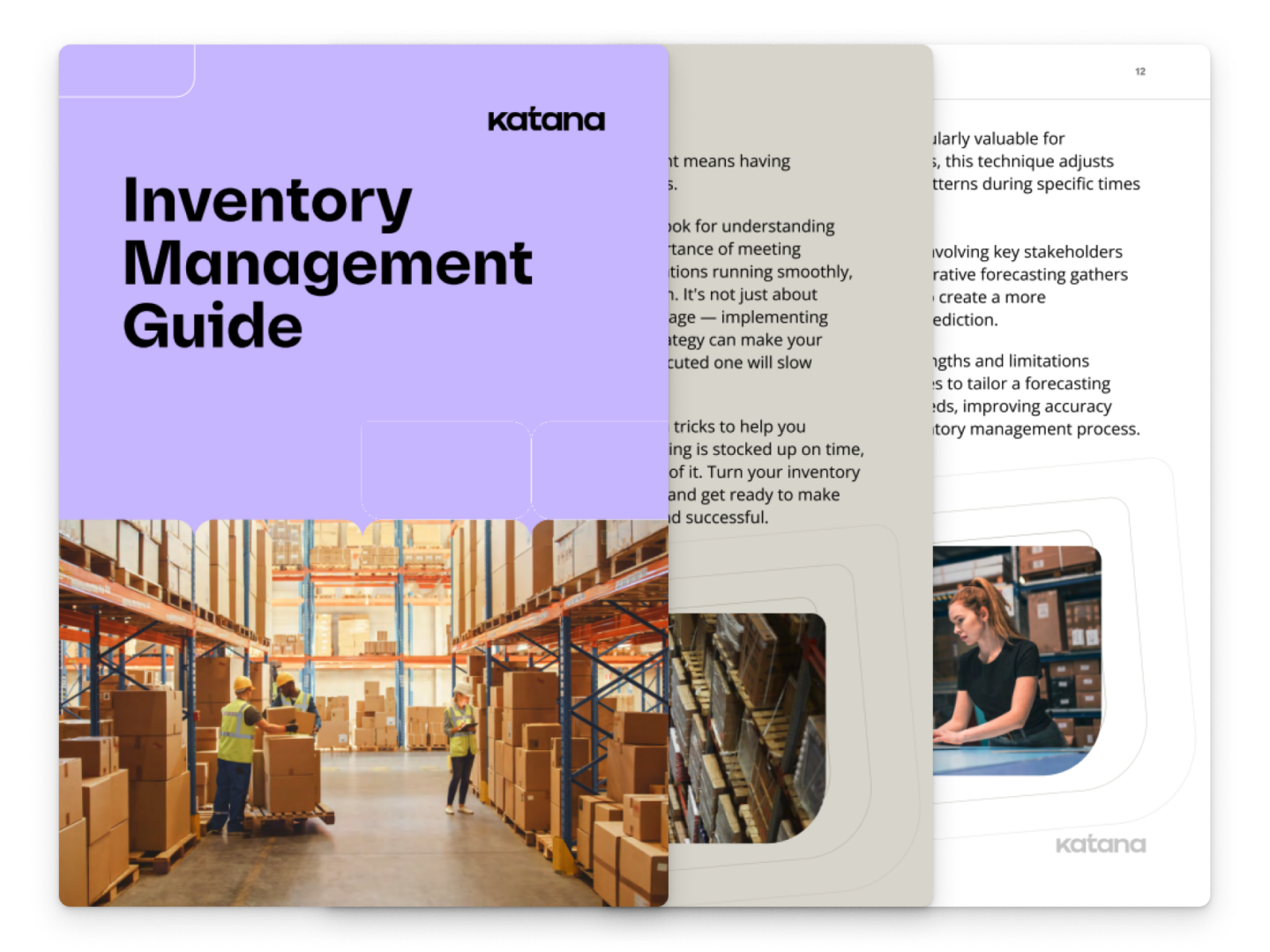Ecommerce for distributors: Hurdles, insights, and why it’s worth the hype

Ioana Neamt

Let’s face it — the world of ecommerce for distributors is like a dodgeball game. Sure, it’s fun, we get to be part of a team, and rely on shared strengths. But, at the same time, it involves challenges, game-changing moments, and a whole lot of keeping up to do.
Today’s online buyers expect the same reflexes and quick moves as dodging a perfectly aimed ball coming your way. With B2B online sales surging, it’s crystal clear that keeping up with this trend is a make-or-break move for distributors. And, just like on a dodgeball court, the key to ecommerce for distributors is avoiding blindsides from competition while staying nimble to meet customer needs.
What is distributor ecommerce?
In a nutshell, ecommerce makes the world go round. No, really. It’s essentially what sets the pace of your entire business game.
In a slightly bigger nutshell, B2B ecommerce for distributors sells products or services through digital platforms, allowing them to expand beyond local areas and reach global markets, streamline operations, and reduce costs.
Just as making it through a rain of incoming balls is essential for victory in dodgeball, adapting to the ever-shifting expectations of customers is crucial to remaining competitive in the digital arena. However, maintaining competitiveness is just one side of the ecommerce coin. Boosting customer satisfaction is another. And yes, both sides are equally important.

Benefits of ecommerce for distributors
Most distributors already know that, by adopting ecommerce, it becomes easier to stay competitive and grow a business.
Before making a decision, it’s a game of weighing the pros and cons of B2B ecommerce for distributors. And, even at first glance, the advantages outweigh the disadvantages.
Here are the main benefits of ecommerce for distributors:
- Increased sales — By maintaining an online presence, distributors can expand their market reach beyond traditional brick-and-mortar limitations. Nowadays, it’s vital to capture sales from more and more customers who prefer to shop online.
- Global access — Reaching customers worldwide is where it’s at. Ecommerce enables distributors to tap into new markets and customer segments beyond their local geographical boundaries.
- Increased efficiency — Ecommerce platforms allow distributors to streamline order processing, inventory management, and just about every step of the process. This ends up reducing manual errors and making improvements when it comes to overall operational efficiency.
- Better customer insights — At the end of the day, it’s all about making improvements based on customer behavior. Ecommerce for distributors comes with enhanced business accounts and data, which enables visibility into customer trends. This, in turn, optimizes marketing decisions, inventory, and even pricing.
- Open 24/7 — Shopping at any time and without pesky staff is a dream come true for the modern consumer. It’s quite simple — an online shop that’s open round-the-clock leads to increased convenience and accessibility.
Get the ultimate guide to inventory management
A comprehensive ebook that covers everything you need to know about inventory management.

The challenges of ecommerce for distributors
With experts preaching that every digital step leads to success, it’s easy to get excited about the dynamic world of ecommerce for distributors. But you can’t just throw yourself on the court and expect to dodge every ball coming your way without the right plan and the right tools.
Step one of every successful business plan is assessing the challenges you’re faced with. So, let’s go through the challenges of B2B ecommerce for distributors.
- Initial logistics — From the get-go, the ecommerce buying practice involves complexity across the board. Think fun stuff like law regulations, multiple buyers, international shipping, long sales cycles, customer retention concerns, and marketing brainstorming.
- System integration — Integrating ecommerce with your current business systems can be tough. Not just because of legacy and technical issues, but also because of data consistency trials as well as overall knowledge gaps.
- Resistance to change — Uncertainty in the face of new tech and unfamiliar processes can hinder progress. At first, staff may not grasp the benefits of ecommerce and pose concerns about changing established workflows.
- Data security and compliance — There’s no successful ecommerce without complying with data privacy regulations. So, implementing robust cybersecurity measures to prevent data breaches forms a big chunk of your ecommerce strategy.
- Customer acquisition — Getting new customers in a competitive online marketplace is easier said than done. It comes with effective digital marketing strategies and catering to already-existing users’ necessities, all while providing exceptional service.

Ecommerce for distributors tips and tricks
Like in any good playbook, there are a few essential best practices you’ll want to keep in mind when kickstarting your ecommerce strategy. From mastering inventory management to simply making your website user-friendly, these must-know tips can make all the difference in your online success.
- Mobile-first — Since most purchases are made on smartphones, make sure to prioritize a mobile-friendly website design. Not only can it enhance user experience, but it can also attract more traffic, improve search engine rankings, and help gain a competitive edge.
- Optimize content — Optimizing product content and descriptions should be the first order of business. Focus on relevant keywords, high-quality images, and as many details in the product information as possible. All in the name of enhancing the online shopping experience and driving sales.
- Never underestimate feedback — Real-time customer feedback can drive improvement. Relying on data-driven insights to enhance user experience and increase sales is a surefire way to evolve your platform.
- Your staff is your rock — Start by supporting your employees through the ever-evolving path of ecommerce. Educating staff on ecommerce benefits and training them on new systems and processes is the first step in the right direction.
Choosing the right ecommerce platform for distributors
While B2B ecommerce for distributors can be overwhelming at first, having the right ecommerce platform is necessary to evolve. Don’t risk being left behind and check out the key features that a distributor ecommerce platform should have.
- Product info that includes detailed descriptions and high-quality images
- Accurate searching with the possibility of filtering by price, category, brand, and any other search refinement option
- AI personalization that can suggest related items, target promotions, and customize pricing for individual customers
- Distributor portal that allows for access to pricing, inventory, order status, and other necessary reports

Luckily, there are platforms out there that offer the above features, and more. Here are just a few examples:
- BigCommerce — User experience comes first with this leading cloud platform. BigCommerce offers mobile-responsive solutions while displaying a user-friendly and mobile-friendly interface.
- NetSuite Commerce — This platform is all about optimizing interactions for suppliers and consumers. If you’re looking for a customizable ecommerce platform for distributors that’s fit for a multichannel business, including brick-and-mortar, this is it.
- Shift4 Shop — This feature-rich platform comes with unlimited bandwidth and about 100 customizable templates in its free plan. Secure payments, as well as robust inventory and order management, make it a top choice.
- Squarespace — Drag-and-drop editing options, industry-specific designs, built-in marketing tools, and intuitive ecommerce functionality. It’s no wonder why Squarespace is one of the most popular choices for creating professional online stores.
- Shopify — This online business game-changer covers all bases, from customizable websites to easy-peasy payment processing. Plus, with Katana’s Shopify inventory management integration on top of its user-friendly interface and drag-and-drop customization, building your store is a breeze.
Ecommerce for distributors with Katana
Need the best in ecommerce for distributors? Then streamline your needs with Katana.
From real-time insights into sales, production, and inventory, to seamless integration with ecommerce and accounting tools, Katana’s suite of features and tools is part of your winning business gameplay.
With online sales booming and ecommerce already a part of users’ everyday lives, it’s not enough to keep up the pace. You need to step it up. And, in the game of ecommerce dodgeball, Katana is the teammate you need next to you on the court.
Book a demo with Katana and see for yourself how embracing ecommerce isn’t just a smart move — it’s a path to the future.

Ioana Neamt
Table of contents
Get inventory trends, news, and tips every month
Get visibility over your sales and stock
Wave goodbye to uncertainty with Katana Cloud Inventory — AI-powered for total inventory control